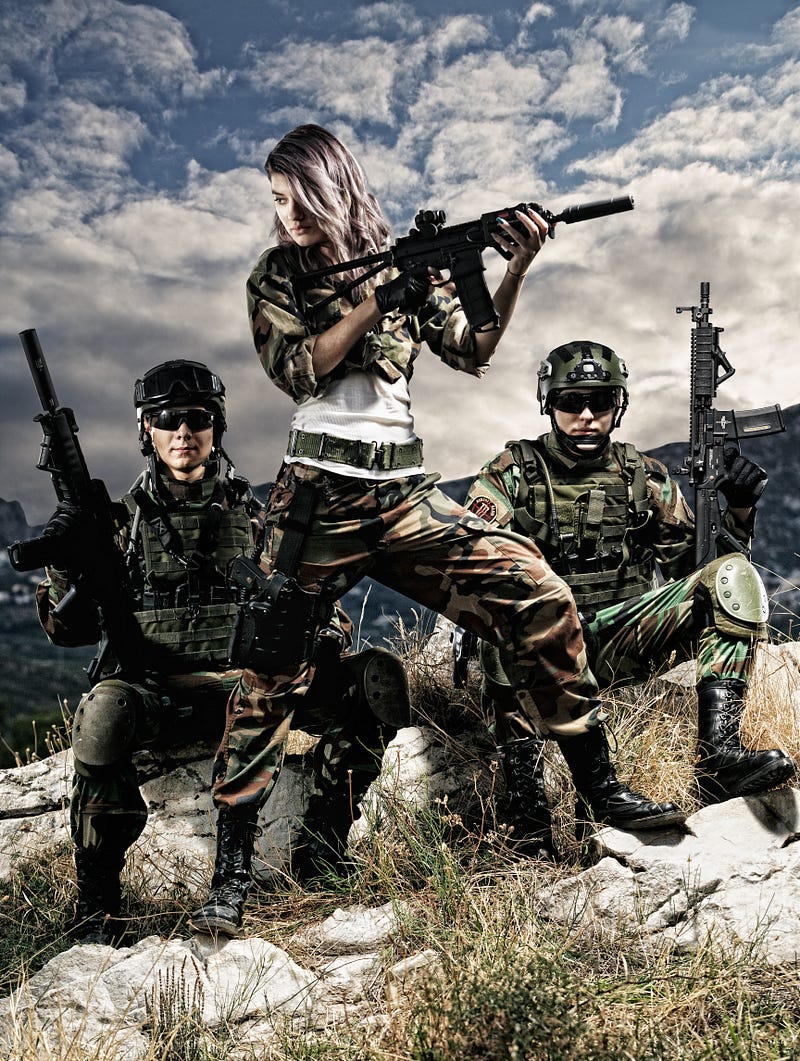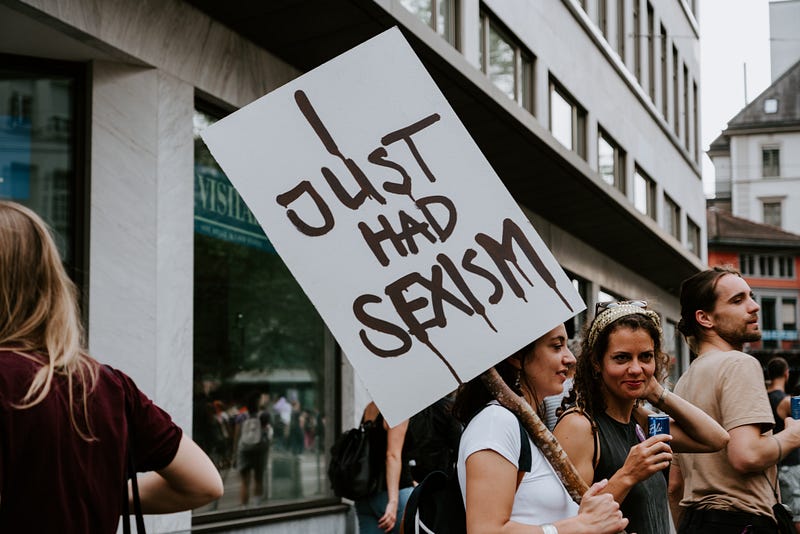Roleplaying Sexism
the unconscious (and not-so unconscious) biases within the roleplaying community

I recently did an interview for a project about fan-fiction and writing-based roleplaying games in which the interviewer asked what some of my low points in these various communities were. I gave a couple of answers dealing with how psychological issues can manifest through these mediums before a thought occurred to me: how had I not mentioned sexism?
Wonderful writing can take place within fan-fiction. For the most part, the type of fan-fiction I’ve participated in has been OC-based (“OC” stands for Original Character, where the writer creates their own character but places them within a pre-constructed world, like the Star Wars or Mass Effect universes). One of the hallmarks of this sort of fiction is that it allows the writers to, in a sense, access the “series bible” for the universe they’re a fan of, and then go on to create stories of their own.
How had I not mentioned sexism?
Many of the character’s I’ve created and written are female, probably about 2/3rds of them. Because of the nature of how some of these roleplaying sites operate, it’s not always clear who the author is — they can exist almost completely behind the screen of their character. It’s a great way to immerse yourself in your character, as a writer, but it also opens windows into experiences which you might not have otherwise glimpsed.
Over the many years I’ve been involved in this style of writing, I’ve experienced two forms of sexism as a consequence of which characters I’m playing.
The first is outright sexism. People who treat me, the writer behind the character, dismissively and rudely because of the apparent assumption that I am a women (given that I’m playing a female character).
The second, and perhaps the most pernicious, is the kind where even if they might know that I’m a man, they treat my character disrespectfully. This seems to hold the inherent idea that I should be obliging their behavior or even playing into it with them because I am also a man.
What I find most unsettling is how these experiences highlight some of the mechanics of sexism
There are a couple of eerie takeaways from these experiences that I think need further consideration.
That sexism is an inherent problem in our culture — and our world — should not take anyone by surprise. Sexism is probably the most deeply-inherent bias in human culture. That’s a problem that needs continued focus from all quarters, but I want to keep the focus specific here. What I find most unsettling is how these experiences highlight some of the mechanics of sexism.
In the first type of experience, where people are unable to ascertain the identity of the writer behind a character, it’s fascinating to realize that so many of them appear to assume that the character and the writer share the same identity. Without me doing anything to warrant it, the connection is bridged in their minds. As I’ve said: I’ve received both dismissive and rude behavior directed at me but clearly intended for a woman. I’ve also had people make propositions about having my character involved in relationships with their characters (and we’re not talking about creating strong relationship arcs within the narrative, if you understand my meaning). It’s frankly, quite icky.
What’s always fascinated me is that these people so utterly conflate me with my character that it doesn’t seem to even for a moment occur to them that I might not be the same as my character — or, if it does, it even more oddly doesn’t really matter. They’re acting out this need for domination and intrusion utterly without any meta-cognition what-so-ever.
But what about the other form of sexism? The kind where I’m apparently being invited to partake in sexism directly pointed at my character? When the other writer knows that I’m a man and therefore feels comfortable playing up the sexism of their own character.
When asked about this, most writers who have these habits are likely to respond with “It’s roleplaying! I’m just writing my character the way he’s supposed to be written! He’s not a nice guy! He’s been hardened by [insert war/battle/trauma here]!”
I experienced some of this character-directed sexism rather recently, actually. Some other things were going on too (the writer in question, aside from not being a very good writer, also failed to understand that cooperative online roleplaying has more in common with improvisational acting than it does with PvP MMOs). But worse, they had their character making sexist comments about mine — they treated my character flippantly and took the trouble to write phrases like “he expected nothing less from a woman.” Coupled with their inability to “play nice” (they demanded to be allowed to drive the plot, utterly disregarding the cooperative aspect of the experience), this overt sexism really pissed me off. Not only were they being dismissive of the safe container of the writing group, they also were going out of their way to demean my character in a very destructive way.
I told them that I did not think they were approaching the experience with a good attitude and that I did not feel comfortable continuing to write with them. They spontaneously deleted the shared post in a huff and I’ve yet to hear from them again.
When asked about this, most writers who have these habits are likely to respond with “It’s roleplaying! I’m just writing my character the way he’s supposed to be written! He’s not a nice guy! He’s been hardened by [insert war/battle/trauma here]!” or some variation thereof. Again, utterly convinced of their own innocence, utterly unable to metacognize at even a elementary level.

So, what can we take away from this?
Firstly: not all roleplaying groups are equal, and many strive to weed out this behavior. I’d say that the majority of people who try to get into roleplaying within their favorite universes at least mean well, even if they do still harbor unexplored biases (who doesn’t). But it’s important to take a look at the way that those who are more aggressively biased behave because within their behavior are some important clues about how our culture views women and also femininity.
Ultimately, it’s the responsibility of everyone in these communities to stand up against this sort of behavior whenever it emerges, because it will take a concentrated effort to make it stop. This is thousands of years of internalized normality, reinforced by hundreds of years of Judeo-Christian patriarchy; it’s not something that will disappear in just a few decades or even centuries. But the sooner we stand up, plant our feet firmly, and say, “No, this is not okay,” the sooner we’ll reach a point where things change.
But I also think that this is an opportunity to remind ourselves that we do have tools we can use to explore the world beyond our own physical manifestation. We can, if we work at it, learn to experience a little of what others go through and perhaps we can garner just enough of a sliver of a glimpse to really empathize and realize that there are certain internalized structures of belief that we all carry all the time. Of course, I want to highlight that we can learn to empathize and explore experiences other than our own, but we’re not going to be actually living inside those experiences. I’ve had some gnarly encounters in my life, offline and on, but I’ll never know what it’s like to be a female game who deals with these issues constantly and has dealt with them since birth.
However, I do believe that once the light of awareness shines on those shadowy corners of the mind, the rot begins to shrivel and dissolve. If we can keep the light shining long enough and bright enough, I believe that the zeitgeist can change.
